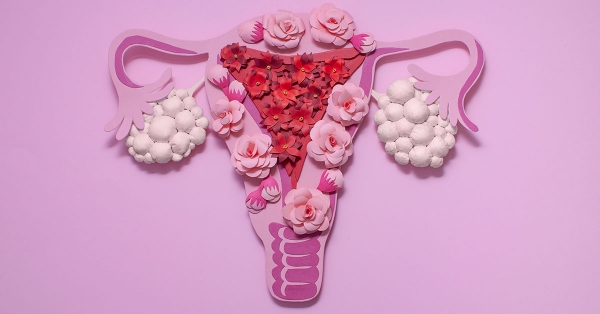What is PCOS? Polycystic Ovary Syndrome (PCOS) is a medical condition that causes ovaries to produce an abnormal amount of androgens, male sex hormones that are usually present in minute quantities in women. It is a hormonal condition that affects women during what is known as the childbearing years. The name polycystic ovaries refers to the numerous cysts ( they are fluid-filled sacs) that form in the ovaries. All women suffering from PCOS do not develop cysts and women can form cysts without having PCOS.
Ovulation occurs when a mature egg is released by the ovaries. This occurs so it can be fertilized by a sperm. When an egg is not fertilized, it is removed from the body through the menstrual cycle. When a woman’s body does not produce the required hormones for ovulation, small cysts may form in the ovaries. These cysts produce androgens. Women with PCOS often have elevated androgen levels. A high level of androgens affects the menstrual cycle and may cause many of the symptoms associated with PCOS.
Could you have PCOS?*
PCOS is the most common endocrine disorder among women between the ages of 18 and 44. It affects approximately 2% to 20% of the women in these age groups depending on how you choose to define it. PCOS is the most common cause when someone is infertile because of a lack of ovulation.
Here is a checklist of the common symptoms of PCOS you can keep an eye out for.
While the signs and symptoms of PCOS vary, most women have at least two of the following symptoms:
- Irregular Periods: Infrequent, prolonged, or irregular menstrual cycles are the most common symptoms of PCOS. For example, you don’t get your periods every month.
- High Levels of Androgens: Elevated Androgen levels may result in physical signs such as excess body and facial hair growth(hirsutism) and occasionally severe acne and severe hair loss.
- Polycystic Ovaries: The ovaries of a woman with PCOS can be enlarged and contain follicles that surround the eggs. As a result, the ovaries may fail to function regularly.
*Visit a doctor for proper diagnosis and treatment.
The exact cause of PCOS is not clear. Many women with PCOS suffer from insulin resistance. This implies that their bodies cannot use insulin properly. Insulin levels build up in the body and cause androgen levels to increase. Obesity also causes PCOS symptoms to become worse. PCOS can also run in families. It’s not uncommon for sisters or a mother and daughter or blood relatives to have PCOS.
Myths regarding PCOS
Myth #1: You Caused It: While the exact cause of PCOS is not known, we can say with certainty that you did not cause it yourself. Hormones and genetics are known factors that can cause PCOS.
Myth #2: Weight Loss will cure PCOS: Unfortunately, there is no cure for PCOS, but overweight and obese women can help balance their hormone levels by losing weight. Otherwise, treatment is aimed at managing symptoms.
Myth #3: PCOS is a Rare Condition: PCOS is the most common endocrine disorder among women between the ages of 18 and 44. It affects approximately 2% to 20% of the women in these age groups depending on how you choose to define it.
This blog is contributed by Jyoti Chabria!
Author Bio: With 30 years of sincere experience, Jyoti Chabria is a prominent personality in the field of Nutrition and Dietetics. Currently the Managing Director at Jyoti Wellness Pvt. Ltd, she has made a very judicious effort to revolutionize the mindset of people when it comes to taking medication. Offering a very effective and natural substitute to Allopathic drugs, she has introduced a variety of naturally made supplements under the brand Nutriline. She is on the advisory board of NNHSA an endeavor of the government of India. An inspiration in all form – a successful entrepreneur, counselor, social worker, recipient of numerous national and international awards, columnist (The Times of India, Deccan Chronicle, Andhra Jyoti (Telugu), Deccan Post, Health Line Magazines), senior consultant at numerous hospitals, a teacher at Hotel Management Institutes- she truly defines outright dedication towards one’s passionate field.
Website: https://www.jyotichabria.com/
Instagram: https://www.instagram.com/drjyotichabria/

